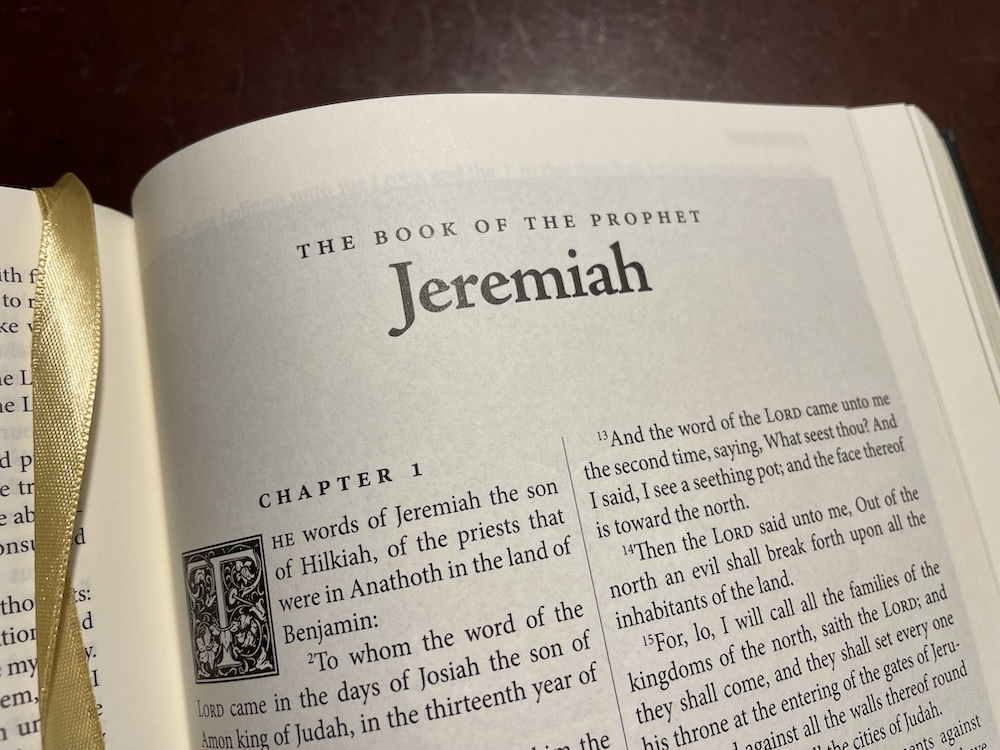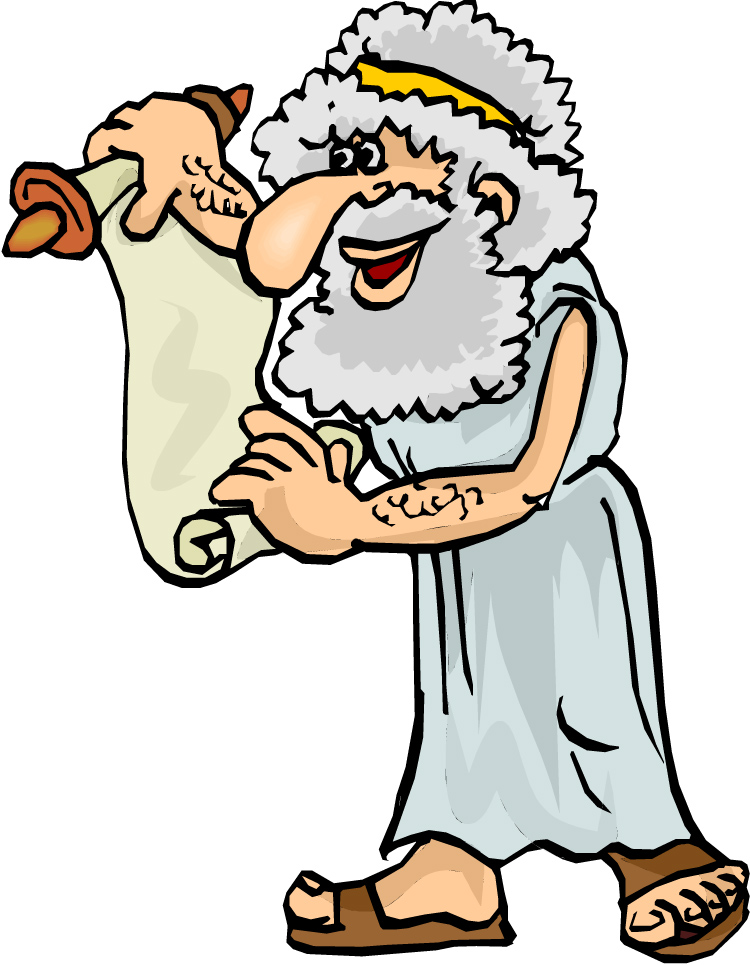
Jeremiah 17
Jeremiah 17:1, The hearts of Gentile-Israelites have become hardened by the sinful traditions they have inherited from their fathers. What was your response when someone began sharing with you about the pagan origins of many sacred cow Christian traditions such as Sunday observance, Christmas and Easter? Once your eyes were opened, were you excited to share the truth with family and friends? What was their reaction?

Jeremiah 17:2, Wooden images…green trees.In ancient times, sacred tree-like poles (like obelisks called asherah poles) and green trees were set up near pagan altars for the worship of the Babylonian and Canaanite sex goddess, Astarte (or Ishtar from which the Christian festival Easter derives its name).
In Exodus 34:13, YHVH commands the Israelites to destroy the pagan sex worship symbols that the NIV Study Bible describes as wooden poles, or carved images, that were set up in honor of this pagan goddess at pagan worship sites. The International Bible Encyclopedia (vol. 1, p. 317) states that a tree trunk with branches in honor of this pagan deity was often placed next to the altar of YHVH—something YHVH abhorred! (Deut 16:21; Judg 6:25, 28, 30; 2 Kgs 23:6). In Deuteronomy 16:21, YHVH forbids his people from placing wooden images or trees next to their altars.
You shall not plant for yourself any tree, as a wooden image, near the altar which you build for yourself to the YHVH your Elohim.
Today, at Christmas time, contrary to the Written Word of Elohim, Christian churches place trees next to their altars of worship.
Jeremiah’s description of such a tree in chapter 10 is eerily reminiscent of our modern Christmas tree, which finds itself placed in significant places where people gather whether it be in Christian churches and in homes. Sometimes this pagan deity was represented by a tree, sometimes by an obelisk type pole. The asherah pole is related to the matstebah, which is defined as “image, pillar, stump, tree or altar.”This type of pagan representation made its way into the religious system of ancient Israel, something YHVH forbad and something he expected righteous leaders to destroy (e.g. 2 Kgs 10:25–27). Have you ever wondered about the origins of the church steeple and about its striking resemblance to the ancient Egyptian obelisk, which was associated with phallic and sun god worship?
Jeremiah 17:5–8, Two trees are mentioned in these verses. Both are in the wilderness and subjected to the heat and drought thereof, yet one does not flourish and “will not see when good comes,” while the other is fazed neither by the heat nor the drought of the desert. If these trees represent two types of people going through the same wilderness experience called life, then what is the fundamental difference between them? Relate this back to verse five and ahead to verses nine and ten.
Jeremiah 17:9, The heart is deceitful above all thing.
The Utter Depravity of Sinful Man
The Bible is a big book. It contains more than 1500 pages of divine instructions on countless subjects from numerous authors written over a period of more than 1500 years! Within the plethora of subjects contained therein, it is easy to overlook certain ones that are less complimentary to man, but that he nevertheless needs to be reminded of if he is to come into a right relationship with YHVH Elohim (the Creator and ultimate Author of the Bible).
One of these biblical themes pertains to the utter depravity of man in his spiritually unregenerate state. The Bible has a lot to say about this subject, and it’s not a pleasant one. And even after man is regenerated by the Spirit of Elohim, he still struggles with his base, carnal, godless, rebellious, anti-Elohim and sin-bent nature.
Like taking a strong medicinal tonic, from time to time, it is imperative that the redeemed of YHVH review the Scriptures in the Bible that discuss the subject of man’s depravity. As forgetful humans who have the prideful tendency to gloss over our sins (this too is an aspect of man’s depraved and sin-inclined nature), we need to hold the mirror of truth up to our faces to see ourselves as we really are. When we behold this reality, perhaps it will drive us back to the cross of Yeshua in repentance of our sin, and cause us to fall down in contriteness before the mercy seat of Elohim’s throne begging for mercy. Perhaps the fear of Elohim will be perfected in us, and he will be exalted in our sin-stained hearts and minds in the beauty of his absolute righteousness and spiritual perfection. As this occurs, proper spiritual order will be restored in the universe and in our lives as we assume our rightful position on our faces before his throne of mercy. Only then will we find right relationship with the Creator of the universe resulting in true peace, joy, happiness and eternal life and peace on earth among men as we recognize our utter depravity and at the same time the beauty and glory of Elohim’s sublime perfection and holiness.
Who can bring a clean thing out of an unclean? Not one. (Job 14:4)
What is man, that he should be clean, and he which is born of a woman, that he should be righteous? Behold, he puts no trust in his saints; yea, the heavens are not clean in his sight. How much more abominable and filthy is man, which drinks iniquity like water? (Job 15:14–16)
Behold, I was shaped in iniquity; and in sin did my mother conceive me. (Ps 51:5)
Elohim looked down from heaven upon the children of men, to see if there were any that did understand, that did seek Elohim. Every one of them is gone back: they are altogether become filthy; there is none that does good, no, not one. (Ps 53:2–30)
Frowardness is in his heart, he devises mischief continually; he sows discord. (Prov 6:14)
This is an evil among all things that are done under the sun, that there is one event unto all: yea, also the heart of the sons of men is full of evil, and madness is in their heart while they live, and after that they go to the dead. (Eccl 9:3)
Then said I, Woe is me! for I am undone; because I am a man of unclean lips, and I dwell in the midst of a people of unclean lips: for mine eyes have seen the King, the LORD of hosts. (Isa 6:5)
All we like sheep have gone astray; we have turned every one to his own way; and YHVH has laid on him the iniquity of us all. (Isa 53:6)
But we are all as an unclean thing, and all our righteousness is as filthy rags; and we all do fade as a leaf; and our iniquities, like the wind, have taken us away. (Isa 64:6)
The heart is deceitful above all things, and desperately wicked: who can know it? (Jer 17:9)
And he said, That which comes out of the man, that defiles the man. For from within, out of the heart of men, proceed evil thoughts, adulteries, fornications, murders, thefts, covetousness, wickedness, deceit, lasciviousness, an evil eye, blasphemy, pride, foolishness. All these evil things come from within, and defile the man. (Mark 7:21–23)
As it is written, There is none righteous, no, not one: There is none that understands, there is none that seeks after Elohim. They are all gone out of the way, they are together become unprofitable; there is none that does good, no, not one. Their throat is an open sepulchre; with their tongues they have used deceit; the poison of asps is under their lips: whose mouth is full of cursing and bitterness. Their feet are swift to shed blood: destruction and misery are in their ways: and the way of peace have they not known. There is no fear of Elohim before their eyes. (Rom 3:10–18)
For we know that the law is spiritual: but I am carnal, sold under sin. For that which I do I allow not: for what I would, that do I not; but what I hate, that do I. If then I do that which I would not, I consent unto the law that it is good. Now then it is no more I that do it, but sin that dwells in me. For I know that in me (that is, in my flesh,) dwells no good thing: for to will is present with me; but how to perform that which is good I find not. For the good that I would I do not: but the evil which I would not, that I do. Now if I do that I would not, it is no more I that do it, but sin that dwells in me. I find then a law, that, when I would do good, evil is present with me. For I delight in the law of Elohim after the inward man: But I see another law in my members, warring against the law of my mind, and bringing me into captivity to the law of sin which is in my members. O wretched man that I am! who shall deliver me from the body of this death? (Rom 7:14–24)
Because the carnal mind is enmity against Elohim: for it is not subject to the law of Elohim, neither indeed can be. So then they that are in the flesh cannot please Elohim. (Rom 8:7–8)
Now the works of the flesh are manifest, which are these; adultery, fornication, uncleanness, lasciviousness, Idolatry, witchcraft, hatred, variance, emulations, wrath, strife, seditions, heresies, Envy, murders, drunkenness, revellings, and such like: of the which I tell you before, as I have also told you in time past, that they which do such things shall not inherit the kingdom of Elohim. (Gal 5:19–21)
And you hath he quickened, who were dead in trespasses and sins; wherein in time past ye walked according to the course of this world, according to the prince of the power of the air, the spirit that now worketh in the children of disobedience: (Eph 2:1–2)
What should be our response before YHVH Elohim to the truth of who we are before him? Let us learn from the wisdom of Job.
Wherefore I abhor myself, and repent in dust and ashes. (Job 42:6)
And said, O my Elohim, I am ashamed and blush to lift up my face to thee, my Elohim: for our iniquities are increased over our head, and our trespass is grown up unto the heavens. (Ezra 9:6)
The sacrifices of Elohim are a broken spirit: a broken and a contrite heart, O Elohim, thou wilt not despise. (Ps 51:17)
Then shall ye remember your own evil ways, and your doings that were not good, and shall lothe yourselves in your own sight for your iniquities and for your abominations. (Ezek 36:31)
This is a faithful saying, and worthy of all acceptation, that Messiah Yeshua came into the world to save sinners; of whom I am chief. (1Tim 1:15)
Be afflicted, and mourn, and weep: let your laughter be turned to mourning, and your joy to heaviness. Humble yourselves in the sight of YHVH, and he shall lift you up. (Jas 4:10)
Now in conclusion of the matter, be encouraged by reading the following Bible passages: Psalms 51:1–17; 103:1–18; 1 John 1:9
Jeremiah 17:14, Heal me, O YHVH.This is a plea to YHVH, the Great Physician. Only he can heal the hardness (17:1) and crooked deceitfulness or weakness (17:9) of Israel’s heart. Various prophets link the concept of healing to that of the two houses of Israel being reunited, being restored to their promised land and spiritual inheritance, returning to Torah and the establishment of a Messianic kingdom on earth. Here are some thoughts on these things:
The Breech Will Be Repaired
Those who are returning to the Sabbath in its full spiritual sense and are returning to the “old (ancient, everlasting) paths” (Jer 6:16) are called “repairers of the breach” (Isa 58:12; Amos 9:11).
What is a breach? By dictionary definitiona breach is “an infraction or violation of a law; a broken, ruptured or torn condition; a split, crack or divide between two sides; a break in friendly relations.” This is what occurred when the northern kingdom was torn away from King Rehoboam causing a split in the nation of Israel (1 Kgs 11:13, 29–40; 12:1–20).
The last question the disciples asked Yeshua before his ascension was whether he was about to restore the kingdom to Israel (Acts 1:6). What was Yeshua’s response to them? He told them to preach the gospel everywhere (verse 8). This message of restoration and repairing the breach was the focus of what Paul called the ministry of reconciliation (2 Cor 5:18) and the middle wall of partition between Jews and non-Jews coming down and the making of one new man out of two through the atoning sacrifice of Yeshua (Eph. 2:11–19).
The “Sick” Will Be Healed
The hireling and self-seeking shepherds of Israel who should have cared for, healed and fed YHVH’s sheep have instead left them in a weakened, sickly and malnourished state (Ezek 34:4, 16). Yeshua came to heal his sick sheep (Ezek 34:8–31).
Spiritual Blindness Will Be Healed
In Hebraic thought, blindness is a metaphor for spiritual blindness, lack of spiritual enlightenment, and especially Torahlessness; that is, it is a reference to those who are blinded to the light of YHVH’s truth (Isa 29:18; 42:7, 16, 18–19; 43:8; Jer 31:8, see also Rom 11:25; Isa 56:10).
Jeremiah 22
Jeremiah 22:3–17, Social justice. Here Jeremiah calls for social justice and reforms that correct inequities among the Israelites’ social classes. He includes in these reforms a return to the Torah (verse 9) to avert the severe judgments of Elohim (verse 11ff).
Jeremiah 23
Jeremiah 23:6, YHVH Our Righteousness. This name is a reference to the coming Messiah. This infers the deity and righteous attributes of Yeshua the Messiah. Additionally, the term righteousness attached to the name YHVH with its prophetic messianic implications boldly declares the validity of the Torah, since Torah defines what YHVH’s standard of righteousness is (Ps 119:172). YHVH himself adheres to this standard, since it’s a reflection of his character. Furthermore, if Yeshua hadn’t followed this standard perfectly he would have been a sinner, and our Savior — the perfect, spotless, sin-free Lamb who died to cover men’s sins.
Jeremiah 23:13, Prophesied by Baal. That is to say, the false prophets prophesied out of the dictates of their hearts, or in accordance with the passions of their lower, depraved nature (in sync with the world, the flesh and the devil), and not in agreement with the will, word and Spirit of YHVH Elohim. (See notes at Num 22:41.) This is the wisdom that is earthly, sensual and devilish that James talks about that descends from below (Jas 3:15).
Jeremiah 23:14, His wickedness. Wickedness is Torahlessness, since YHVH’s Torah defines what sin or wickedness is (1 John 3:4). The false prophets taught against the Torah. What they prophesied was profane or polluted, since it was not based on the Torah’s standard of righteousness (vv. 11, 15). Furthermore, the prophets prophesied according to the dictates of their own hearts (vv. 16, 17), which as noted in the notes on verse 13 is nothing more than Baal worship — something the Israelites had given themselves over to and which the prophet addresses numerous times throughout his writings. All the true biblical prophets (in both the Old and New Testaments) were Torah-obedient and never spoke a word against the Torah. Anyone who claims to be a prophet will follow this pattern, or else they’re not a true prophet of YHVH, since it goes against the biblical model of a true prophet.
Jeremiah 23:22, My words. What are the words of YHVH that the false prophets aren’t causing YHVH’s people to hear? His Torah, which are his words that Moses and the children of Israel literally heard from YHVH’s mouth.
Jeremiah 23:31, He says. A noted characteristic of a false prophet is the addition of the phrase, “He says,” in other words, “The Lord says,” or “the word of the Lord is…” (vv. 34, 36, 38) to their prophetic pronouncements as if the addition of these words helps legitimize the their false prophesies. YHVH through Jeremiah warns against using such phrases (v. 38).






